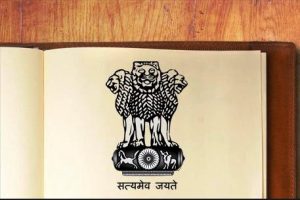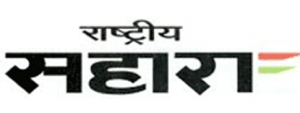
23-06-2017 (Important News Clippings)
To Download Click Here.
New servants for New India
Civil services need to reinvent themselves and become proactive agents of change
By LC Goyal

In order to realise this vision of New India propounded by Prime Minister Narendra Modi, civil services will need to reinvent themselves. Public servants must redefine their role and become proactive ‘agents of change’, disrupting the status quo.Indeed, they would need to possess a deeper sense of commitment to public service or the common good, and function as servants of the public rather than as officers. They can no longer have any excuses on this score.
Equally, officers who take bona fide decisions in public interest and for the larger common good should be encouraged and provided protection in the event of false allegations or unsustainable inquiries initiated against them.In 2013, when i worked in the cabinet secretariat as special secretary, we had issued instructions that no action will be taken against officers merely on the basis of anonymous or pseudonymous complaints.
Further, we had also, in association with DoPT, initiated certain amendments in the Prevention of Corruption Act that, inter alia, are aimed at ensuring there is a clear distinction between misconduct and criminal misconduct and that retired officers are also protected from unnecessary investigation or prosecution for bona fide decisions taken by them.Such amendments are still a work in progress. There is an urgent need to go through with these amendments to protect upright and diligent officers for doing their work conscientiously. However, accountability of public servants needs to be enforced more vigorously.
It is generally believed that government officials are able to get away without adverse consequences for not doing work or not taking decisions. In other words, non-performers run no risk of being held accountable. This is not to deny that there are a good number of officers who do their duty sincerely, quietly and professionally.It is welcome that Modi government has been taking steps to ensure accountability at higher levels of administration. Similar action is warranted below the level of joint secretary too. A majority of decisions are taken largely based on the notes written by director and under-secretary level officers.
Integrated Finance Division (IFD), which is headed by a joint secretary or an additional secretary level officer as financial adviser, also needs to be more positive and flexible in taking forward the agenda of New India, while adhering to the principle of financial prudence. They need to keep the big picture in mind.
Indeed, the whole IFD system merits an analytical review to enable quicker decision making and release of funds. A paradigm shift is needed in the mindset of officials working in IFD, to be in sync with the requirements of an India aspiring to be a global power.In my view, senior officers of civil services should also own responsibility to change their hackneyed approach.
The issue of accountability is even more critical at the lower rungs of bureaucracy at the state and sub-state levels, for the common citizenry has to come in frequent contact with lower level government functionaries and very often has to face their rent seeking behaviour, in other words petty corruption.Greater use of IT and making mandatory online delivery of public goods and services within given timelines at the Centre and particularly in states, with fines to be imposed on negligent and erring officials, will go a long way in enforcing accountability.
Another imperative of good governance is to ensure minimum government and maximum governance, as enunciated by Modi when the present government came to office in 2014.
This essentially means greater ease of doing business and requires that rules, regulations, systems and processes of government functioning be rationalised and simplified. These need to be easy to understand and should not result in any delay. This would also require increased use of technology in every manner of interaction with government and government functionaries.A lot of work is now being done at the Centre and in many states but a lot more remains to be done. This would not happen on the scale needed unless senior members of civil services show greater passion and initiative in this regard.
Apart from continued simplification of processes and systems, there is an urgent need to achieve rightsizing of government at different levels.The lesser the number of ministries/ departments, the better it is for governance. Such rationalisation or merger of certain ministries/ departments aims to reduce multiple structures, achieve better synergy and affinity between related subjects and ensure the desired outcomes in terms of better policy formulation, coordination and implementation. This exercise will also entail abolition of certain secretary level posts.
Public servants need to reaffirm their deep commitment to converting the vision of New India into reality. They should feel impatient and inspired to work with the political leadership in changing the status quo and making India a strong and inclusive country in its march towards being a global power.
Date:23-06-17
Plug the gaps
Aadhaar’s legal ecosystem needs big upgrade as it becomes a must for many services
TOI Editorials

India today is in urgent need of a tight legislation on personal data protection. Digitisation of society is proceeding at a remarkable pace but relevant legislations going back to 1885 and 2000 are inadequate. One defence of the current situation has been that technology outpaces regulation. But this is a lame excuse as sections of government have worked on data protection laws for seven years. Even as two governments have been unable to come up with a law, BJD parliamentarian Jay Panda filed a private members data privacy and protection bill. Government is better equipped than individuals and should take the lead in legislating on personal data protection.
The Aadhaar legislation is over a year old. One of its highlights was an attempt at data protection. But developments during this period show there are problems which need to be ironed out. For instance, there are far too many crucial aspects of its working which are delegated to subordinate legislation. This removes an important layer of oversight. Delegating far too much power to the executive is not prudent. Another weakness is looseness on grievance redressal. Absence of a stand-alone legislation on data protection and privacy makes Aadhaar’s weakness in grievance redressal dangerous.
Aadhaar is a voluntary scheme and the legislation aims to target delivery of subsidies. Making it mandatory for other areas such as provision of a driver’s license is unnecessary and amounts to disabling red tapism. Here it is best if Aadhaar is just added to the list of existing identifiers. Government’s priority now should be to deal with the dangerous gaps in the legal ecosystem which governs India’s digitisation. This trend has the potential to transform society. But the potential will be fulfilled only if government carries out its duty of mitigating the risks people face on this journey.
नौकरियां पैदा करने में मददगार आर्थिक नीतियों की दरकार
श्यामल मजूमदार
नौकरी पैदा कर पाने में भारतीय आर्थिक विकास के नाकाम रहने का ताजा सबूत मैनपावर ग्रुप ने दिया है। मानव संसाधन क्षेत्र की सलाहकार कंपनी ने जुलाई-सितंबर 2017 के लिए जारी अपने रोजगार सर्वेक्षण में कहा है कि रोजगार बाजार लगातार छठी तिमाही में नीचे का रुझान दिखाएगा। इस तिमाही में नई नौकरियां देने की उम्मीद काफी कम रहने की आशंका है।
हंस तो नहीं रहा दार्जिलिंग
शैलेन्द्र शांत
कोई दो हफ्ते से पश्चिम बंगाल के पर्वतीय क्षेत्र में जारी आंदोलन ने मुख्यमंत्री ममता बनर्जी के इस दावे पर पानी फेर दिया है कि पहाड़ हंस रहा है। उल्टे एक नई मुसीबत बन कर खड़ा हो गया है, यह आंदोलन। परेशान पर्यटक आंदोलनकारियों को कोसते लौट चुके हैं। लेकिन इसके जरिए होने वाली आय से वंचित होटल-लॉज वाले, दुकानदार और अन्य तमाम व्यवसायी अपनी माली हालत को लेकर चिंतित हैं। एटीएम से पैसे नहीं मिल रहे। चाय उद्योग पर भी गंभीर खतरा पैदा हो गया है। खाने-पीने के सामान का संकट भी दरपेश है। लेकिन आंदोलनकारी दल और संगठन गोरखालैंड की मांग पर अड़ गए हैं। इस मांग पर कल के शत्रु भी आज साथ आ खड़े हुएहैं। इससे हासिल क्या हुआ, यह तो वक्त ही बताएगा। पर मंगलवार को गोरखा जनमुक्ति मोर्चा ने एक सर्वदलीय बैठक करने के बाद ऐलान किया कि आंदोलन जारी रहेगा। इसमें तृणमूल कांग्रेस को छोड़ लगभग सभी दलों ने शिरकत की। वे भी जो लगातार बंद की राजनीति के पक्ष में नहीं हैं। कभी प्रतिद्वंद्वी रहे गोरखा नेशनल लिबरेशन फ्रंट (जीएनएलएफ) से अलग हो जाने वाले पूर्व विधायक हरका बहादुर छेत्री की जन आंदोलन पार्टी, अखिल भारतीय गोरखा लीग, गोरखालैंड राज्य निर्माण मोर्चा, भारतीय गोरखा परिसंघ, मार्क्सवादी कम्युनिस्ट रेवोल्युशनरी पार्टी आदि इस आंदोलन के साथ खड़े हैं। साथ ही, बंद को वापस लेने के पक्ष में हैं। जीएनएलएफ ने तो मोर्चा से जीटीए से बाहर निकल आने की सलाह दी है। गोरखा जनमुक्ति मोर्चा के महासचिव ने कहा है कि ताजा हालात के लिए उनका दल जिम्मेदार नहीं, लेकिन बातचीत गोरखालैंड पर होनी चाहिए। मोर्चा सरकार की ओर से होने वाली 22 जून की बैठक में शिरकत करने से इनकार कर दिया है। वह इस मसले पर केंद्र से बात करना चाहता है। भाजपा सांसद और मंत्री एसएस अहलूवालिया से उसे न्याय को भरोसा है। सांसद ने इस मांग पर विचार करने के लिए गृह मंत्रालय से विशेषज्ञों की एक समिति बनाने की मांग की है। मोर्चा ने कहा है कि लोक सभा चुनाव में भाजपा उम्मीदवार को समर्थन के एवज में वह उनसे कुछ उम्मीद तो कर ही सकता है।सभी जानते हैं कि गोरखालैंड की मांग पर्वतीय क्षेत्र में बीच-बीच में उठती रही है। भाषायी और सांस्कृतिक अस्मिता के सवाल इससे जोड़े जाते रहे हैं। आर्थिक उपेक्षा या विकास का मसला भी स्वर पाता रहा है। वैसे तो यह मांग बहुत पुरानी है। कोई सौ साल से भी ज्यादा पुरानी। इसके लिए कई बार हिंसक आंदोलन हो चुके हैं। जीएनएलएफ का आंदोलन इसका गवाह रहा है। उसे पीछे कर ही मोर्चा सामने आया है। इसमें भाजपा, कांग्रेस और तृणमूल के दिए खाद-पानी की भी भूमिका रही है। जीटीए में गोरखालैंड शब्द का समायोजन ममता सरकार की ही देन है-दार्जिलिंग पर्वतीय परिषद की जगह गोरखालैंड क्षेत्रीय प्रशासन।बहरहाल, ताजा आंदोलन के पीछे राज्य सरकार की वादाखिलाफी के आरोप के साथ ही बांग्ला भाषा को थोपे जाने का बहाना भी है। गोरखालैंड क्षेत्रीय प्रशासन (जीटीए) के अध्यक्ष विमल गुरुंग का आरोप है कि जीटीए को समझौते के मुताबिक जरूरी विभाग नहीं सौंपे गए। इसे न तो अपेक्षित अधिकार मिल पाया और न ही धन। राज्य सरकार ने पूरी क्षमता के साथ काम करने के अवसर-साधन ही नहीं दिए।गौरतलब है कि उन्नीस सौ अस्सी के दशक में गोरखा नेशनल लिबरेशन फ्रंट ने सुभाष घीसिंग की अगुआई में अलग राज्य की मांग को लेकर हिंसक आंदोलन शुरू किया था। 1985 से 1988 के दौरान इसी मांग के तहत चले आंदोलन में हिंसा की तमाम वारदात में करीब 13 सौ लोग मारे गए थे। तब की वाम मोर्चा सरकार ने भी इस मांग को खारिज कर दिया था। बाद में सरकार ने सुभाष घीसिंग के साथ एक समझौते के तहत दार्जिलिंग गोरखा पर्वतीय परिषद का गठन किया था। घीसिंग वर्ष 2008 तक इसके अध्यक्ष रहे। इसी बीच उनके काम से नाखुश लोगों की पहल से पहाड़ियों में गोरखा जनमुक्ति मोर्चा को ताकतवर बनाया जाने लगा। विमल गुरुंग की अगुवाई में मोर्चा ने नये सिरे से अलग गोरखालैंड की मांग में आंदोलन शुरू कर दिया। विपक्ष में बैठे राजनीतिक दलों ने भी अपने राजनीतिक नफा-नुकसान के मद्देनजर सियासी रोटियां सेंकी। तबके हालात के लिए कांग्रेस और बाद में तृणमूल कांग्रेस ने वाम मोर्चा सरकार को जिम्मेदार माना और अब कांग्रेस, भाजपा और वाम दल मौजूदा हालात के लिए ममता बनर्जी को जिम्मेदार मान रहे हैं। कोई इस सरकार की बदले की राजनीति को जिम्मेदार ठहरा रहा है, तो कोई गोरखा जनमुक्ति मोर्चा के प्रति सरकार के भेदभाव वाले रवैये को। राज्य कांग्रेस अध्यक्ष अधीर चौधरी खुल कर दार्जिलिंग की हालत के लिए ममता बनर्जी को जिम्मेदार बता रहे हैं। इसी तरह भाजपा अध्यक्ष दिलीप घोष ने सरकार पर मोर्चा और जीटीए के साथ सौतेला व्यवहार करने का आरोप लगाया है, तो वाम दलों ने ममता की अवसरवादी राजनीति को। घोष कहते हैं कि सरकार को इस मुद्दे पर सर्वदलीय बैठक बुलानी चाहिए। वैसे, राजनीतिक प्रेक्षकों का मानना है कि इधर तृणमूल ने पहाड़ी क्षेत्र में जिस तरह अपनी गतिविधियां तेज की हैं, उससे मोर्चा के कान खड़े हो गए हैं। गौरतलब है जीटीए का कार्यकाल खत्म होने को आया, लेकिन अगले महीने होने वाले जीटीए चुनावों पर आंदोलन का असर पड़ना तय है। हो सकता है कि इसे टाल भी दिया जाए। इसी के खर्चे की जांच के आदेश से ही मोर्चा नेतृत्व राज्य सरकार के खिलाफ भड़का और अचानक आंदोलन शुरू कर दिया। ममता बनर्जी सरकार ने बेहद सख्ती दिखा कर आग में घी डालने का काम कर दिया है। संप्रति आंदोलन व राजनीति की मंशा और अंजाम जो भी हो, लेकिन सच यह है कि इस इलाके के लोग परेशान हैं, और असंतुष्ट भी।
Where are the commons?
The tension between ownership to tangible and intangible property and the enjoyment of the commons by all is not a new phenomenon. Fences could not have been there when land came into existence. Fences came later, encumbrances came later and so did title deeds and patta. Kuthambai, one of the ancient learned Siddhars, sang songs seemingly simple but layered with philosophical and metaphysical subtexts. One goes like this: “Vetta veli thannil meyyenrirupporkku pattayam edukkadi? (What would the one who has realised Infinite Space do with certificates of ownership?)” He was of course singing about a different space, not about tangible property like land.
Even after man felt that there was need for fences and certificates of ownership, he still recognised that some lands must be kept in common for use by all or for the sake of all. In medieval England they were called commons, a resource to be enjoyed by all. These lands and the non-arable lands were classified in Tamil as “poramboke”. The protest song “Porambokku enakku illai porambokku unakku illai porambokku oorukku porambokku bhoomikku” is about this commons and how the commons are diminishing. The words “mandai veli” and “maattuthaavani” are poignant echoes to a time when cattle had access to grazing grounds. Not now, those areas are covered by concrete structures. If we could divine the thoughts of our cattle, we would know they are wondering why their lives are protected with such violence and vehemence when all they want is grass.
Encroachment all around
Shifting gear to bring the Siddhar’s query to lands on hand, how can patta be granted to the commons? But commons are being fenced with grim determination not just by private encroachers but even by the state with its irresistible might. The poramboke song is really a protest against the encroachment by state in the Ennore creek which must be kept in the commons. The approved coastal map of the creek shows that no development can be permitted in the water-spread area which covers about 8,000 acres. But already there are thermal plants, oil companies and other such constructions on 1,090 acres of the 8,000 acres which are protected as per the Wetlands (Conservation and Management) Rules, 2010. And helplessly we ask like Juvenal, “Quis custodiet ipsos custodes? (Who guards the guard?)” The rules begin with a preamble about how wetlands are a vital part of the hydrological cycle, how they are seriously threatened by landfills, and overexploitation, and how it is necessary to maintain and conserve the wetlands and aim for ecological balance consistent with the Ramsar Convention (an international treaty on wetlands signed in 1971). Oh yes.
Our beaches in Chennai are open to the public, we think. But last year we read that the Chennai Corporation refused permission to underprivileged children who wanted to play a soccer tournament. This was no permanent construction or encroachment, just few hours of robust and joyous play, for children who had been practising for it. The reason given for refusal was that Olive Ridley turtles would be disturbed by this activity. The tournament was scheduled in September. It was scrapped. Experts said that Olive Ridleys would be thousands of miles away in September, so the alleged disturbance was plainly illusory. Let us now read Article 39(f) of the Constitution which directs the state to ensure that children “are given opportunities and facilities to develop in a healthy manner”. But those children, who are stuck in spirit-sapping residences, who want to spend their energy in a space that is common to all, were frustrated in their attempt. Then we have reports of growing juvenile delinquency, blind to the reality that a childhood spent without the freedom of playing in open spaces could warp the young minds. Where are the commons for our children who do not hold a patta, where are the poramboke areas open to all in the world?
A creative commons
In the other-worldly world of intellectual property too, shrinking open spaces harm the public well-being. Creative Commons is a concept which enables and facilitates sharing of knowledge and creativity to build a more equitable, accessible, and innovative world within the framework of law. The use of Creative Commons licence for copyright is based on a philosophy of openness and sharing and not on monetising strategies and restrictive ‘fences’. As SpicyIP, a repository on Indian intellectual property law, commented in its blog, the entire exercise of this endeavour is “to place a book in the hands of every child”. In like manner, the soccer tournament in Marina and Besant Nagar was intended to place a ball of joy in the hands of the child.
The 2006 WHO Report on Intellectual Property Rights, Innovation and Public Health found that increasing IP enforcement does not necessarily increase innovation especially in developing countries where the technology expertise has still not reached the optimum level. On the other hand, it is positively detrimental because it restricts access to its consumers, the majority of whom are poor. The price stranglehold, which is the equivalent of fencing and refusing permission to play soccer, causes rippling harm.
Now I come to another space where diminishing commons are positively harmful: access to justice. Section 327 of the Criminal Procedure Code says, “The place in which any Criminal Court is held for the purpose of inquiring into or trying any offence shall be deemed to be an open Court, to which the public generally may have access, so far as the same can conveniently contain them.” The place of justice is meant to be common to all and easily accessible. This too is becoming a luxury not freely accessible, and that is not compatible with the Idea of Democracy.
I will end with the story of a wise woman of Tamil Nadu as I began with a wise man. This woman is barely into her teens. She lives in a small tribal village close to Bandipur. I owe this story to Spicy IP founder Prof. Shamnad Basheer. She had created a new step in her dance. This is an extract of the dialogue between Prof. Basheer and her.
“Do you know that it is something new you have created?”
‘Yes.’
‘It is ok.’ (She does not care either way.)
“If your classmate passes it off as her innovation, would you mind?”
‘No.’
“Would you fight with her?”
‘Why should I?’
“If she had created a new step, would you pass it off as yours?”
‘Why should I?’
She obviously had a strong ethical core and possessed the wisdom to understand that some spaces must be common to all and unfenced —Vetta veli thannil meyyenrirupporkku pattayam edukkadi. We are losing this Truth.




